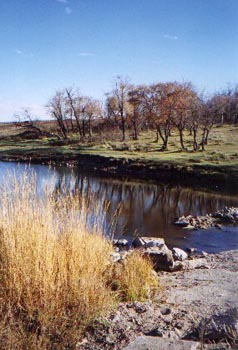I left last Tuesday morning – more than 24 hours later I arrived in Rio for the FCI World Dog Show. The 2 shows covered 4 days, and with three days taken up in travel, it was a whirlwind experience.
The Exposition Center is absolutely huge, with the show occupying three gigantic buildings. I regret not taking a photo of our benching area – approximately 4,000 sq feet for several handlers, owners and around 40 dogs. My host has the top winning Mini Schnauzers in Brazil. (I sold him a dog a few years ago and was there as his guest.) There were two full time kennel men who did the heavy lifting, much of the grooming and all the basic care, errands and cleaning. The dogs loved them – a sign of how well they did their jobs. Labour costs are extremely low in Brazil – I was told they were paid around $50 US a month. In Brazil’s heavily class-divided society, they are unlikely to ever achieve their goal of becoming full fledged handlers – they’re black. Each benching area had tents in which they slept at night, so that the dogs were supervised 24 hours a day.
In addition there was a third employee – an armed guard who doubled as a driver. (The drug wars were not that far from the site, and there were armed guards at the gates as well). As it turned out, having high placed “connections” at the show afforded me the luxury of VIP status for the group and best in show judging. We had the comfort of lounge chairs and waiters, free beer, cola and coffee and finger food – and fans – while the rest of the spectators crammed several deep like sweating sardines, and dared not leave for losing their view.
The event was heavy with ceremony – the national dog of Brazil, the “Filas”, were serenaded by a full choir, backed up by an orchestra. There were dancing girls in spectacular costumes. At the conclusion of each group a swarm of press photographers surrounded the winners’ stand. Large overhead screens were up at each end of the main ring those who couldn’t see the judging itself. (Unfortunately, the flash function on my digital camera decided to unfunction, so I didn’t get as many shots of the dog show that I know the curious back at home would have liked to see. )
(Click on the thumbnails for full sized photos)

But, apart from the spectacle and hospitality, the overall experience was deeply disappointing. The quality of most of the breeds that made it to group was poor to mediocre (terriers were an exception), and judging was abysmal. Organization was poor and the venue itself was dreadful. Unseasonably hot, there was no air conditioning – cooling consisted of dozens of ceiling fans that blew intermittent mists of water down on the dogs and people below (in the benching building only – the other 2 exhibition buildings had nothing at all). Temperature inside the show buildings must have been close to 100F – combined with high humidity and a crush of people, it was truly dangerous for the dogs. One top winning Golden Retriever died the first night. I immediately trained my own to lie on an ice pack until it was time to go to the ring.
“Carlos” recieved an “excellent” rating, which is the highest, though no placement. I was prewarned that the judges for our breed were not well thought of. Under the Spanish judge, for example, it came as no surprise when a Portuguese dog recieved top honours. Overall, there was great disappointment about the heavily political nature of the judging all weekend – that coming from judges on the panel as well as exhibitors. At World Shows in the past, host country dogs have had a distinct advantage – in Italy, an Italian dog won Best In Show, the same in Germany, and so forth. Brazil turned out to be no different.
However, when the Brazilian owned Pug was announced as Best In Show, applause was drowned out by booing from the crowd, due to an alleged “set up” that had led to the win. Negative crowd reactions such as this are virtually unheard of in the sport – a contraversial moment that will be talked about for years. But perhaps a necessary one, given the charades of previous World Shows.
Balancing the disappointment of the World Show (I doubt I’ll ever attend another) was the generosity of my hosts. The Brazilians are wonderful people, generous and helpful – I speak no Portuguese and my host no English, so we spoke only through his friends who spent all weekend as translators. It was virtually impossible to pay for anything, and after selling a little artwork, I left the shows with more money than I came with, along with a suitcase full of gifts.

In the few hours before I left on Monday a friend of my host (a professional tour guide) took me on the Reader’s Digest tour of Rio – we went part way up to Sugarloaf, drove past the main beaches and had lunch with him and his housekeeper in his very colourful little “hole in the wall” apartment in Copacabana. I did regret not bringing my Minolta and zoom lens. The shantytowns that cover the hills have to be seen to be believed.

It’s difficult enough to take photos from a moving vehicle – nearly impossible in Brazil, where drivers seem hell bent on mutual destruction. But I have a few more. Visit this directory to see them – the file names are fairly self explanatory.
Directory of photos

Now, I must get some sleep.







